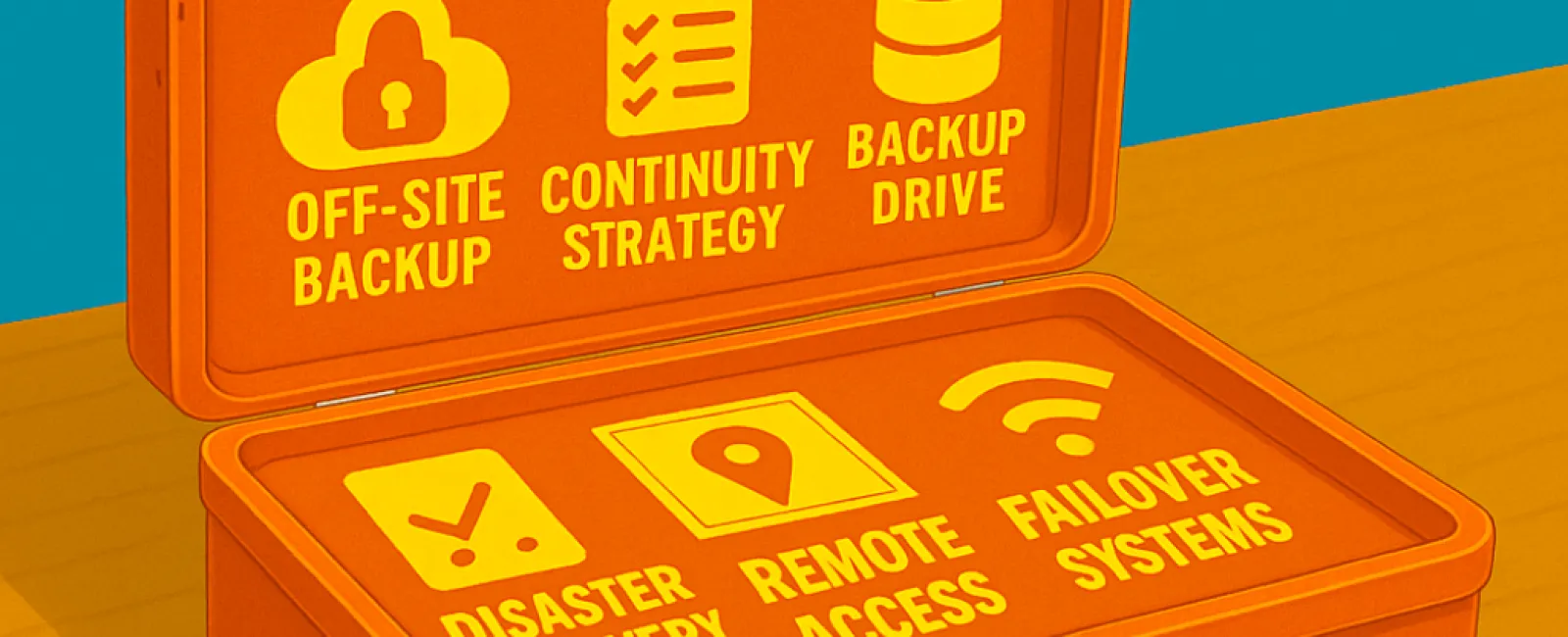July 28, 2025
Unexpected events like power failures, cyberattacks, hardware malfunctions, and natural catastrophes can strike without warning, causing severe disruption to small businesses. Many believe that having backups is sufficient, but restoring a file alone doesn't guarantee your business stays operational. Without access to critical systems, support for remote work, and clear communication with your team and clients, even brief interruptions can escalate into prolonged setbacks. Your IT partner should equip you with more than just backups—they should deliver a comprehensive strategy to keep your business running smoothly no matter the challenge.
Backups Are Only Part of the Solution — You Need a Robust Continuity Plan
Backups are vital, but they represent just one piece of the puzzle. What truly safeguards your business is a business continuity plan: a forward-thinking approach designed to maintain operations during and after any major disruption.
When systems fail, files become inaccessible, or your physical office is unusable, relying solely on backup files stored locally won't suffice. Without a well-defined plan for rapid operational recovery, you risk significant losses in revenue, reputation, and regulatory compliance.
Understanding the Critical Difference Between Backups and Business Continuity
Many businesses make this common mistake:
●
Backups enable data restoration.
●
Continuity ensures your business stays operational regardless of the situation.
A comprehensive continuity plan addresses essential questions such as:
●
What is our recovery time objective?
●
Where will our team operate if the office is inaccessible?
●
Which systems are absolutely mission-critical?
●
Who is responsible for initiating the recovery process?
The plan also includes key components like:
●
Encrypted, off-site, and immutable backups
●
Prioritized recovery objectives (RTO/RPO)
●
Remote work capabilities
●
Redundant systems and automatic failovers
●
Regular disaster simulation drills
If your IT provider can't confidently guide you through these essentials, you're not truly protected—you're just fortunate so far.
Could This Happen to Your Business?
This isn't a scare tactic—it's a reality check. Recent events have shown the devastating impact of disasters on businesses:
●
Florida hurricanes forced hundreds of businesses to shut down, leaving those without cloud access completely immobilized.
●
North Carolina floods wiped out on-site servers, erasing months of vital records and invoices.
●
California wildfires destroyed entire offices in the Pacific Palisades, many lacking any off-site recovery plans.
●
Numerous small businesses hit by ransomware attacks have painfully discovered their backups were corrupted or never tested.
Disasters don't discriminate—they impact businesses of all sizes every day.
Essential Questions to Ask Your IT Provider Today
If disaster struck tomorrow, could your business keep operating?
Make sure to ask your IT provider:
●
How quickly can we recover from a ransomware attack?
● Are our backups regularly tested and which systems do they cover?
● What is the contingency plan if a flood or fire disables our office?
●
Is our continuity strategy compliant with industry regulations?
●
Can we continue serving clients if our team must work remotely?
If you don't have absolute confidence in these answers, your business is vulnerable.
Disasters Are Inevitable. Downtime Doesn't Have To Be.
While you can't prevent every outage, storm, or cyberattack, you can control how your business responds.
A competent IT provider helps you bounce back.
An exceptional one ensures your operations never skip a beat.
Ready to assess your business's resilience?
Click Here or call us at 615-989-0000 to schedule your FREE 15-Minute Discovery Call and let's ensure disasters never translate into downtime.





